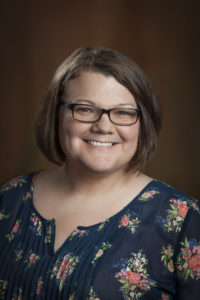
Out of the Old, the New
Like semesters before, Spring 2020 began with little “pomp and circumstance.” After four semesters on-site, I had finally adjusted to the rhythm of university life as a rookie faculty member. My courses, students, and committees had become old, reliable friends; everything was predictable, or so I thought. In the “blink of an eye,” my students, colleagues and my old, reliable routines were swept into a new, unpredictable world. Courses were canceled, closed, or moved hastily to online formats. Our students were forced to return home or find new places to sleep—all while dealing with the financial strains and stresses that this pandemic has brought. Yes, the old is very much gone, and the new “normal,” whatever that might be, now reigns.
What exactly is this “new normal?” I wish I could look into a crystal ball and tell you, but I can’t, no one can. But I do know that in these last few days, universities, their administration, faculty, staff, and students have done something just short of incredible. At my university, for example, over $100,000 has been raised by alumni, faculty, students, and staff to help support current students who are finding it hard to pay rent or buy groceries during these uncertain times. Lending support like this to our students will free them from some anxiety about their basic necessities while trying to finish their courses, or even college careers. I hope that these types of financial support continue well beyond this pandemic. What a beautiful “new normal” this would be.
Regarding instructional design and teaching strategies, teaching during these times has allowed some fresh air to flow into the field of education. Teachers, veteran and rookie, have been provided a gift to re-think old teaching styles and try out new ones. Although it would be nice to jump back into my normal course routine and see my students in person again, I have found moving my course online to be largely enjoyable given the innovative support and great conversations that this move has stirred among my students and colleagues. The sharing of ideas and collegiality that has arisen among colleagues who are searching for new ways to keep their students engaged has broken down many of the instructional silos that have stood for far too long across the vast fields of higher education. This “new normal” is also one that I hope remains long after we return to campus.
The “new normal” that I enjoy does not come without its share of difficulty. For one, although I have enjoyed testing new online teaching strategies, I have also had to re-think others and even eliminate some in response to the “new normal” my students now face. Like many of my colleagues, my students have been separated across the country, each living different experiences at the hands of Covid-19. For some of my students, other than being at home and taking courses online, life is normal; for others, life has become unbearable. I have found that most of my day is spent less on teaching, and more on “checking-in;” cheering on my students that “they can do this!”
Many of our conversations and discussion board posts have been designated as points for quiet reflection and solidarity. Within these conversations, I have learned to be more pastoral and better at letting go. The exams, quizzes, and daily assignments can wait—the personal needs of my students cannot. This “new normal,” although hard to navigate, is also one that I hope to hang on to for as long as I can. As awful as this pandemic has been, I have learned a great deal about myself as a professor of theology and religious education. And I have learned an even greater deal about the lives of my students and my courses. How I teach will never be the same and that, I have found, is the beauty that lies just beyond the “new normal.”
May our “new normal” continue to breathe fresh air into what we have done—may our teaching never be the same.
Leave a Reply